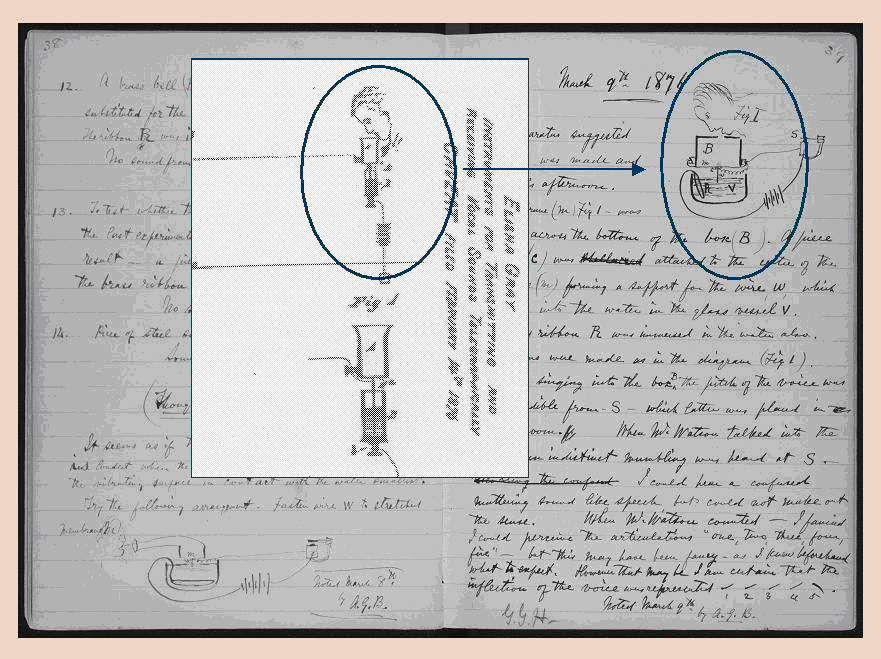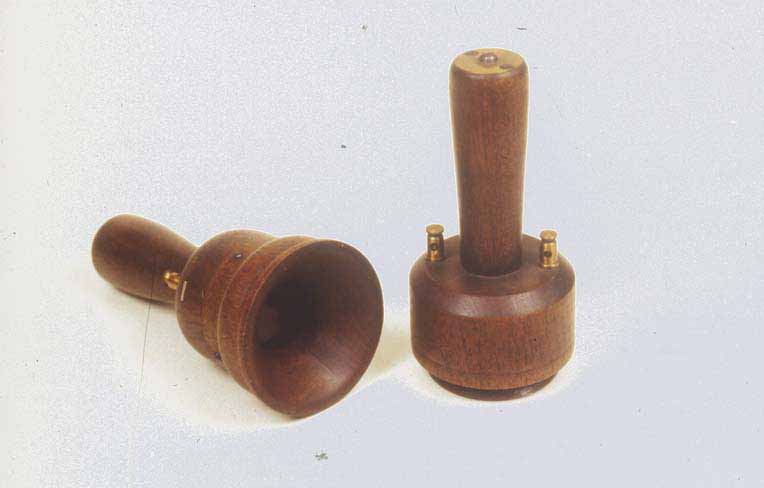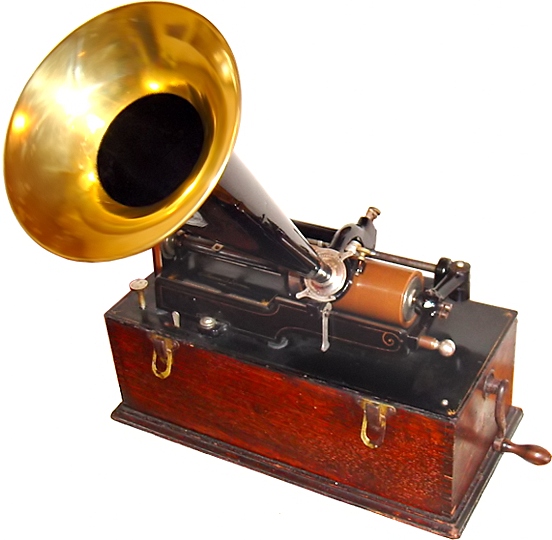|
Alexander Graham Bell
Alexander Graham Bell (, born Alexander Bell; March 3, 1847 – August 2, 1922) was a Scottish-born inventor, scientist and engineer who is credited with patenting the first practical telephone. He also co-founded the American Telephone and Telegraph Company (AT&T) in 1885. Bell's father, grandfather, and brother had all been associated with work on elocution and speech, and both his mother and wife were deaf; profoundly influencing Bell's life's work. His research on hearing and speech further led him to experiment with hearing devices which eventually culminated in Bell being awarded the first U.S. patent for the telephone, on March 7, 1876. Bell considered his invention an intrusion on his real work as a scientist and refused to have a telephone in his study. Many other inventions marked Bell's later life, including groundbreaking work in optical telecommunications, hydrofoils, and aeronautics. Bell also had a strong influence on the National Geographic Society and it ... [...More Info...] [...Related Items...] OR: [Wikipedia] [Google] [Baidu] |
Invention Of The Telephone
The invention of the telephone was the culmination of work done by more than one individual, and led to an array of lawsuits relating to the patent claims of several individuals and numerous companies. Early development The concept of the telephone dates back to the string telephone or lover's telephone that has been known for centuries, comprising two diaphragms connected by a taut string or wire. Sound waves are carried as mechanical vibrations along the string or wire from one diaphragm to the other. The classic example is the tin can telephone, a children's toy made by connecting the two ends of a string to the bottoms of two metal cans, paper cups or similar items. The essential idea of this toy was that a diaphragm can collect voice sounds from the voice sounds for reproduction at a distance. One precursor to the development of the electromagnetic telephone originated in 1833 when Carl Friedrich Gauss and Wilhelm Eduard Weber invented an electromagnetic device for th ... [...More Info...] [...Related Items...] OR: [Wikipedia] [Google] [Baidu] |
Edinburgh
Edinburgh ( ; gd, Dùn Èideann ) is the capital city of Scotland and one of its 32 Council areas of Scotland, council areas. Historically part of the county of Midlothian (interchangeably Edinburghshire before 1921), it is located in Lothian on the southern shore of the Firth of Forth. Edinburgh is Scotland's List of towns and cities in Scotland by population, second-most populous city, after Glasgow, and the List of cities in the United Kingdom, seventh-most populous city in the United Kingdom. Recognised as the capital of Scotland since at least the 15th century, Edinburgh is the seat of the Scottish Government, the Scottish Parliament and the Courts of Scotland, highest courts in Scotland. The city's Holyrood Palace, Palace of Holyroodhouse is the official residence of the Monarchy of the United Kingdom, British monarchy in Scotland. The city has long been a centre of education, particularly in the fields of medicine, Scots law, Scottish law, literature, philosophy, the sc ... [...More Info...] [...Related Items...] OR: [Wikipedia] [Google] [Baidu] |
David Fairchild
David Grandison Fairchild (April 7, 1869 – August 6, 1954) was an American botanist and plant explorer. Fairchild was responsible for the introduction of more than 200,000 exotic plants and varieties of established crops into the United States, including soybeans, pistachios, mangos, nectarines, dates, bamboos, and flowering cherries. Certain varieties of wheat, cotton, and rice became especially economically important. Early life and education Fairchild was born in Lansing, Michigan and was raised in Manhattan, Kansas. He was a member of the Fairchild family, descendants of Thomas Fairchild of Stratford, Connecticut. He graduated from Kansas State College of Agriculture (B.A. 1888, M.S. 1889) where his father, George Fairchild, was president. He continued his studies at Iowa State and at Rutgers with his uncle, Byron Halsted, a noted biologist. He received an honorary D.Sc. degree from Oberlin College in 1915. Career Barbour Lathrop, a wealthy world t ... [...More Info...] [...Related Items...] OR: [Wikipedia] [Google] [Baidu] |
British Subject
The term "British subject" has several different meanings depending on the time period. Before 1949, it referred to almost all subjects of the British Empire (including the United Kingdom, Dominions, and colonies, but excluding protectorates and protected states). Between 1949 and 1983, the term was synonymous with Commonwealth citizen. Currently, it refers to people possessing a class of British nationality largely granted under limited circumstances to those connected with Ireland or British India born before 1949. Individuals with this nationality are British nationals and Commonwealth citizens, but not British citizens. The status under the current definition does not automatically grant the holder right of abode in the United Kingdom but most British subjects do have this entitlement. About 32,400 British subjects hold active British passports with this status and enjoy consular protection when travelling abroad; fewer than 800 do not have right of abode in the UK ... [...More Info...] [...Related Items...] OR: [Wikipedia] [Google] [Baidu] |
The Telephone
''The'' () is a grammatical article in English, denoting persons or things that are already or about to be mentioned, under discussion, implied or otherwise presumed familiar to listeners, readers, or speakers. It is the definite article in English. ''The'' is the most frequently used word in the English language; studies and analyses of texts have found it to account for seven percent of all printed English-language words. It is derived from gendered articles in Old English which combined in Middle English and now has a single form used with nouns of any gender. The word can be used with both singular and plural nouns, and with a noun that starts with any letter. This is different from many other languages, which have different forms of the definite article for different genders or numbers. Pronunciation In most dialects, "the" is pronounced as (with the voiced dental fricative followed by a schwa) when followed by a consonant sound, and as (homophone of the archaic pr ... [...More Info...] [...Related Items...] OR: [Wikipedia] [Google] [Baidu] |
Boston University
Boston University (BU) is a private research university in Boston, Massachusetts. The university is nonsectarian, but has a historical affiliation with the United Methodist Church. It was founded in 1839 by Methodists with its original campus in Newbury, Vermont, before moving to Boston in 1867. The university now has more than 4,000 faculty members and nearly 34,000 students, and is one of Boston's largest employers. It offers bachelor's degrees, master's degrees, doctorates, and medical, dental, business, and law degrees through 17 schools and colleges on three urban campuses. The main campus is situated along the Charles River in Boston's Fenway-Kenmore and Allston neighborhoods, while the Boston University Medical Campus is located in Boston's South End neighborhood. The Fenway campus houses the Wheelock College of Education and Human Development, formerly Wheelock College, which merged with BU in 2018. BU is a member of the Boston Consortium for Higher Educati ... [...More Info...] [...Related Items...] OR: [Wikipedia] [Google] [Baidu] |
Phonograph Cylinder
Phonograph cylinders are the earliest commercial medium for recording and reproducing sound. Commonly known simply as "records" in their era of greatest popularity (c. 1896–1916), these hollow cylindrical objects have an audio recording engraved on the outside surface, which can be reproduced when they are played on a mechanical cylinder phonograph. In the 1910s, the competing disc record system triumphed in the marketplace to become the dominant commercial audio medium. Early development In December 1877, Thomas Edison and his team invented the phonograph using a thin sheet of tin foil wrapped around a hand-cranked, grooved metal cylinder. Tin foil was not a practical recording medium for either commercial or artistic purposes, and the crude hand-cranked phonograph was only marketed as a novelty, to little or no profit. Edison moved on to developing a practical incandescent electric light, and the next improvements to sound recording technology were made by others. ... [...More Info...] [...Related Items...] OR: [Wikipedia] [Google] [Baidu] |
Volta Laboratory And Bureau
The Volta Laboratory (also known as the Alexander Graham Bell Laboratory, the Bell Carriage House and the Bell Laboratory) and the Volta Bureau were created in Georgetown, Washington, D.C. by Alexander Graham Bell.(19/20th-century scientist and inventor best known for his work on the telephone) The Volta Laboratory was founded in 1880–1881 with Charles Sumner Tainter and Bell's cousin, Chichester Bell, for the research and development of telecommunication, phonograph and other technologies. Using funds generated by the Volta Laboratory, Bell later founded the Volta Bureau in 1887 "for the increase and diffusion of knowledge relating to the deaf", and merged with the American Association for the Promotion and Teaching of Speech to the Deaf (AAPTSD) in 1908. It was renamed as the Alexander Graham Bell Association for the Deaf in 1956 and then the Alexander Graham Bell Association for the Deaf and Hard of Hearing in 1999. Alexander Graham Bell Association for the Deaf and ... [...More Info...] [...Related Items...] OR: [Wikipedia] [Google] [Baidu] |
IEEE Spectrum
''IEEE Spectrum'' is a magazine edited by the Institute of Electrical and Electronics Engineers The Institute of Electrical and Electronics Engineers (IEEE) is a 501(c)(3) professional association for electronic engineering and electrical engineering (and associated disciplines) with its corporate office in New York City and its operation .... The first issue of ''IEEE Spectrum'' was published in January 1964 as a successor to ''Electrical Engineering''. The magazine contains peer-reviewed articles about technology and science trends affecting business and society. In 2010, ''IEEE Spectrum'' was the recipient of '' Utne Reader'' magazine's Utne Independent Press Award for Science/Technology Coverage. In 2012, ''IEEE Spectrum'' was selected as the winner of the National Magazine Awards' "General Excellence Among Thought Leader Magazines" category. References External links * {{Official website, https://spectrum.ieee.org/ Monthly magazines published in the United Stat ... [...More Info...] [...Related Items...] OR: [Wikipedia] [Google] [Baidu] |
Chichester Bell
Chichester Alexander Bell (1848–1924) was an American chemist and inventor. He was a first cousin of Alexander Graham Bell, and instrumental in developing improved versions of the phonograph.American History MuseumCharles Sumner Tainter Papers, Smithsonian American History Museum website, Washington, D.C. Retrieved 14 July 2011. Life Bell was born in Dublin, Ireland in 1848 to Professor David Charles Bell (1817–1903) and Ellen Adine Highland.Chichester Alexander Bell , Recording Pioneers website. Retrieved 13 August 2011. David Charles was an elder brother to Professor , the renowned British authority on elocution and speech. Bel ... [...More Info...] [...Related Items...] OR: [Wikipedia] [Google] [Baidu] |
Edwin S
The name Edwin means "rich friend". It comes from the Old English elements "ead" (rich, blessed) and "ƿine" (friend). The original Anglo-Saxon form is Eadƿine, which is also found for Anglo-Saxon figures. People * Edwin of Northumbria (died 632 or 633), King of Northumbria and Christian saint * Edwin (son of Edward the Elder) (died 933) * Eadwine of Sussex (died 982), King of Sussex * Eadwine of Abingdon (died 990), Abbot of Abingdon * Edwin, Earl of Mercia (died 1071), brother-in-law of Harold Godwinson (Harold II) * Edwin (director) (born 1978), Indonesian filmmaker * Edwin (musician) (born 1968), Canadian musician * Edwin Abeygunasekera, Sri Lankan Sinhala politician, member of the 1st and 2nd State Council of Ceylon * Edwin Ariyadasa (1922-2021), Sri Lankan Sinhala journalist * Edwin Austin Abbey (1852–1911) British artist * Edwin Eugene Aldrin (born 1930), although he changed it to Buzz Aldrin, American astronaut * Edwin Howard Armstrong (1890–1954), Americ ... [...More Info...] [...Related Items...] OR: [Wikipedia] [Google] [Baidu] |



.png)


